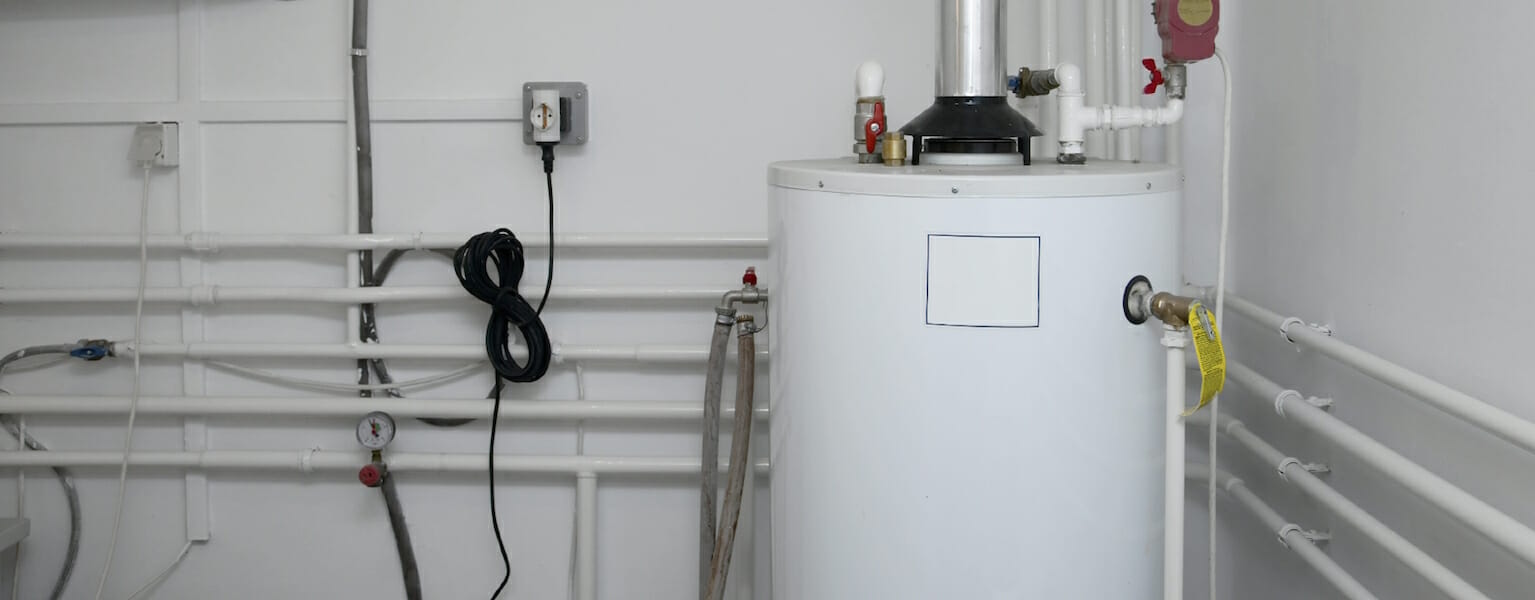Michelle and her husband Tony were about to be the proud owners of a beautiful three-bedroom home in Great Falls, Montana. As first-time homeowners, they were overjoyed to be spending the holidays in a house they could finally call their own.
Start your free trial today!
Try Buildium for free for 14 days. No credit card needed.
Start Your TrialThey went through the home inspection process and everything went off without a hitch. A few minor repairs were needed here and there, but the big-ticket items all seemed to be in good working order. Facing no issues, they felt comfortable enough with the condition of their systems (heating, electrical, appliances and otherwise) to forgo a home warranty. Their decision wasn’t unique; many homeowners go the same route.
Just as the magic of the holidays was wearing off, Michelle and Tony’s 8-year old hot water heater burst. Gallons of water flooded the basement. Fortunately, the basement was unfinished and they weren’t using it for much other than storing a few items. But adding to the headache, Tony was about to head off on a business trip to Florida and Michelle was planning to join him to catch some rays.
They had less than two days to make a decision—replace the hot water heater with a traditional tank, or upgrade to a tankless system?
Choosing a Water Heater for Your Rental Property: 6 Considerations
#1: Capacity
A traditional water heater typically holds 40 to 60 gallons of water that is continuously heated in a tank. Hot water is readily available, but it comes at the expense of using significant energy in the process.
A tankless water heater is smaller because as the name implies, it does not actually have a tank. Instead, it heats water as it needed before piping it to your shower, faucet or appliance. Because water is only heated when needed, its estimated that tankless hot water heaters use 22% less energy than traditional ones!
#2: Cost
A traditional tank costs anywhere from $300 to $650, while a tankless water heater usually costs at least $700.
A number of state and federal tax rebates exist for energy efficient appliances and virtually all tankless hot water heaters qualify. Energy companies also offer incentives and discounts, so it’s important to do some research to see what might be available in your neck of the woods.
#3: Installation
Even with rebates and discounts, tankless water heaters can be pricey, because the installation process is more time consuming. Fewer plumbers are certified to install them, and those that can charge higher rates.
Additionally, tankless systems are powered by gas heat—if your home does not have a gas connection already, the cost of making this connection far outweighs the lifelong cost savings of a tankless system.
Tankless heaters also require more energy when heating water, so existing gas lines may need to be upgraded to a bigger pipe during the installation process, adding additional costs to those who already have gas connections on their property.
#4: Lifespan
Some consider the upfront costs a worthwhile investment because tankless hot water heaters can last up to 20 years, whereas the typical hot water heater lasts only about 8 to 10 years, as Michelle and Tony just learned. If you plan on staying in your home for a while, the tankless might be a good option.
#5: Space
Wall-mounted tankless units use only a fraction of the space of a traditional hot water heater, so they are a good option for those who are in tight living quarters and need additional space.
#6: Convenience & Comfort
Depending on where the tankless unit is physically located and where the water source is you’re tapping in to, it can take longer to get warm water to the outflow (up to two minutes)! This is particularly true in cold places, like Michelle and Tony’s property in Montana; the tankless unit heats water as it comes in from the ground so the colder the water is to begin with, the longer it will take to heat.
Additionally, Tankless water heaters can only supply a few gallons of hot water at a time. So, if you have a large family and everyone needs to shower at the same time, or if you want to shower, do laundry and/or run the dishwasher at the same time, a tankless water heater presents a challenge.
So when it came time to replace Michelle and Tony’s water heater, what route did they go? Their new home was pretty large, and they were concerned with a tankless unit’s ability to efficiently pipe hot water to various parts of the house. They’re also planning to start a family, so they’ll be using more water in the future than they do now.
But the biggest factor was a time constraint: They needed a plumber to replace the hot water heater before heading out on their trip to Florida. They didn’t have the time or the interest in spending days and hundreds of dollars more for a hot water heater.
Ultimately, they decided to go with the traditional hot water heater. They decided the money could be best spent otherwise—on other home improvement projects, on building up their rainy day fund, or even on a few extra cocktails in Florida! For their specific set of circumstances a tankless unit just didn’t seem practical or cost effective.
What are your preferences at your properties? Share with us how you would make this decision in the comments below—and any tips you have about care to extend the life of the water heater.
Read more on Maintenance

